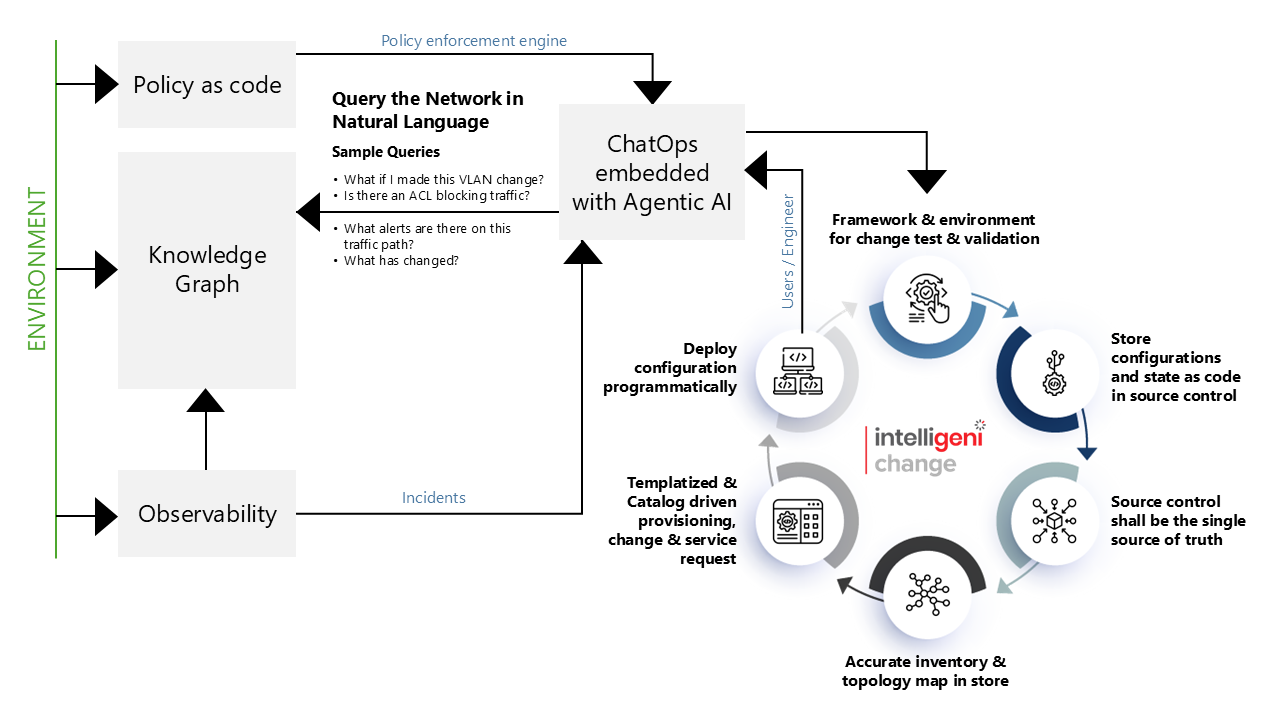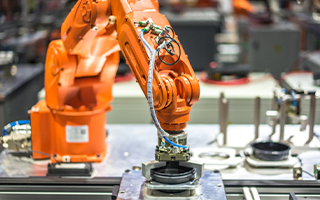Beyond Change as Code: How Intelligent Validation is Redefining Change Reliability

The New Frontier in Change Management
As organizations embrace automation, continuous integration/continuous delivery (CI/CD) pipelines for automated change management, one persistent challenge remains: how do we validate that a change is safe, correct, and will not disrupt production much before it goes live?
The Traditional Pitfall: Post-Facto Validation or Manual Reviews
Traditionally, change validation relies on manual reviews, team approvals, post-deployment testing, and monitoring. While these steps are important, if they are the only safeguard in place, we are walking a tightrope. These tools are reactive by design; they alert us only after something breaks. By then, users are impacted, SLAs may have been breached, and we are already in firefighting mode. The real question is, can we prevent bad changes from reaching production in the first place?
The Shift to Proactive Assurance with Intelligent Change Validation
Today’s systems demand validation processes that are not only automated but also context-aware and intelligent.
What if we could predict the outcomes of the change? What if we could evaluate every change before its deployment, and we could ask questions like
- Would this change impact critical and dependent systems?
- Would this change break connectivity between business-critical sites?
- Would this change block critical traffic?
- All “What-if” type questions
Not just the ability to reason, but even better, automatically prevent high-risk changes from being pushed to the live environment.
This is the vision behind intelligent change validation with Intelligeni Change, a proactive, automated method to simulate and assess the outcome of changes before they are deployed.
Microland’s Intelligeni Change module, part of the Intelligeni platform, empowers this transformation by introducing a context-aware validation engine that integrates
- Real-time topology awareness
- Configurations
- Dependency maps and impact models
With this, organizations gain the power to say "no" to automated changes that threaten stability before they go live.
Intelligence at the Core with Intelligeni Change: Building Trust in Automated Change
Leveraging Agentic AI integrated with knowledge models and holistic network insights, Intelligeni Change moves beyond static checks by embracing a comprehensive query model. A model that supports Reasoning + Agentic Execution by leveraging structured knowledge from multiple sources, including topology, dependency mapping, configs, policies, and external intelligence, to deliver context-aware responses. This helps identify misconfigurations and pinpoint failure zones from multiple perspectives.
It is not just about detecting errors; it is about building trust in Automated Change.
Intelligeni Change brings intelligent validation to life by embedding it into the core of infrastructure change workflows.
Figure 1: Agentic AI embedded in Intelligeni Change
Key capabilities include:
- Topology-Aware Validation: Understands relationships between systems, services, and their inter-dependencies.
- Simulation Driven Checks: Runs "what-if" scenarios before automated rollout of changes.
- Change-as-Transaction: Every change is encapsulated with pre- and post-conditions, success criteria, and rollback mechanisms.
- Telemetry & Observability: Through integration with Intelligeni Observe, track real-time impacts and roll back changes if performance degrades.
Together, these modules form a closed-loop validation engine that ensures changes are not only fast but fundamentally safe.
What’s in it for an Enterprise?
According to industry data, nearly 70% of IT issues stem from change-related activities. Intelligent validation can cut this number significantly with the following benefits.
- Failure Prevention: Reduce failed changes by simulating the impact before deployment.
- Faster Approvals: Automate CAB-level validations using AI-driven reasoning.
- Compliance by Design: Ensure that every change is validated against enterprise policies and configurations.
- Higher SLA Adherence: Eliminating risky changes that could lead to downtime or performance issues.
The Future of Change is Intelligent
Traditional methods won’t scale with modern hybrid environments. Intelligent validation is more than just a safety net; it’s the foundation for confidence in automated change.
Enterprises are asking,
How are we validating changes today?
Are we still relying on reactive checks, or are we building intelligence into the heart of our DevOps pipelines?
Microland’s Intelligeni platform offers a blueprint to operationalize this intelligence, turning change into a strategic enabler rather than an operational risk.
How are you validating change today? Is your process ready for intelligent automation?



















